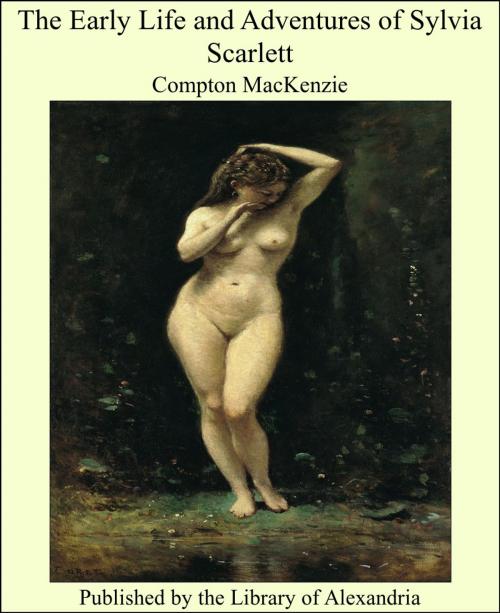The Early Life and Adventures of Sylvia Scarlett
Nonfiction, Religion & Spirituality, New Age, History, Fiction & Literature| Author: | Compton MacKenzie | ISBN: | 9781465533814 |
| Publisher: | Library of Alexandria | Publication: | March 8, 2015 |
| Imprint: | Language: | English |
| Author: | Compton MacKenzie |
| ISBN: | 9781465533814 |
| Publisher: | Library of Alexandria |
| Publication: | March 8, 2015 |
| Imprint: | |
| Language: | English |
Prelude AT six o’clock on the morning of Ash Wednesday in the year 1847, the Honorable Charles Cunningham sat sipping his coffee in the restaurant of the Vendanges de Bourgogne. He was somewhat fatigued by the exertions that as “lion” of the moment he had felt bound to make, exertions that had included a display of English eccentricity and had culminated in a cotillion at a noble house in the Faubourg St.-Germain, the daughter of which had been assigned to him by Parisian gossip as his future wife. Marriage, however, did not present itself to his contemplation as an urgent duty; and he sipped his coffee, reassured by the example of his brother Saxby, who, with the responsibility of a family succession, remained a bachelor. In any case, the notion of marrying a French girl was preposterous; he was not to be flattered into an unsuitable alliance by compliments upon his French. Certainly he spoke French uncommonly well, devilishly well for an Englishman, he told himself; and he stroked his whiskers in complacent meditation. Charles Cunningham had arrived at the Vendanges de Bourgogne to watch that rowdy climax of Carnival, the descente de la Courtille. And now through the raw air they were coming down from Belleville, all sorts of revelers in masks and motley and rags. The noise of tin trumpets and toy drums, of catcalls and cocoricots, of laughter and cheers and whistling, came nearer. Presently the road outside was thronged for the aristocrats of the Faubourg St.-Germain to alight from their carriages and mix with the mob. This was the traditional climax of Carnival for Parisian society: every year they drove here on Ash Wednesday morning to get themselves banged on the head by bladders, to be spurted with cheap scent and pelted with sugar-plums, and to retaliate by flinging down hot louis for the painful enrichment of the masses. The noise was for a time deafening; but gradually the cold light of morning and the melancholy Lenten bells cast a gloom upon the crowd, which passed on toward the boulevards, diminishing in sound and size at every street corner. The tall, fair Englishman let himself be carried along by the exodus, thinking idly what excitable folk foreigners were, but conscious, nevertheless, of a warmth of intimacy that was not at all disagreeable, the kind of intimacy that is bestowed on a man by taking a pack of friendly dogs for a country walk. Suddenly he was aware of a small hand upon his sleeve, a small hand that lay there like a white butterfly; and, looking down, he saw a poke-bonnet garlanded with yellow rosebuds. The poke-bonnet was all he could see, for the wearer kept her gaze steadily on the road, while with little feet she mimicked his long strides. The ineffable lightness of the arm laid on his own, the joyous mockery of her footsteps, the sense of an exquisite smile beneath the poke-bonnet, and the airy tremor of invitation that fluttered from the golden shawl of Siamese crêpe about her shoulders tempted him to withdraw from the crowd at the first opportunity. Soon they were in a by-street, whence the clamor of Carnival slowly died away, leaving no sound upon the morning air but their footfalls and the faint whisper of her petticoats where she tripped along beside him. Presently the poke-bonnet was raised; Charles Cunningham beheld his companion’s face, a perfect oval, set with eyes of deepest brown, demurely passionate, eyes that in this empty street were all for him. He had never considered himself a romantic young man; when this encounter had faded to a mere flush upon the dreamy sky of the past, he was always a little scornful of his first remark, and apt to wonder how the deuce he ever came to make it
Prelude AT six o’clock on the morning of Ash Wednesday in the year 1847, the Honorable Charles Cunningham sat sipping his coffee in the restaurant of the Vendanges de Bourgogne. He was somewhat fatigued by the exertions that as “lion” of the moment he had felt bound to make, exertions that had included a display of English eccentricity and had culminated in a cotillion at a noble house in the Faubourg St.-Germain, the daughter of which had been assigned to him by Parisian gossip as his future wife. Marriage, however, did not present itself to his contemplation as an urgent duty; and he sipped his coffee, reassured by the example of his brother Saxby, who, with the responsibility of a family succession, remained a bachelor. In any case, the notion of marrying a French girl was preposterous; he was not to be flattered into an unsuitable alliance by compliments upon his French. Certainly he spoke French uncommonly well, devilishly well for an Englishman, he told himself; and he stroked his whiskers in complacent meditation. Charles Cunningham had arrived at the Vendanges de Bourgogne to watch that rowdy climax of Carnival, the descente de la Courtille. And now through the raw air they were coming down from Belleville, all sorts of revelers in masks and motley and rags. The noise of tin trumpets and toy drums, of catcalls and cocoricots, of laughter and cheers and whistling, came nearer. Presently the road outside was thronged for the aristocrats of the Faubourg St.-Germain to alight from their carriages and mix with the mob. This was the traditional climax of Carnival for Parisian society: every year they drove here on Ash Wednesday morning to get themselves banged on the head by bladders, to be spurted with cheap scent and pelted with sugar-plums, and to retaliate by flinging down hot louis for the painful enrichment of the masses. The noise was for a time deafening; but gradually the cold light of morning and the melancholy Lenten bells cast a gloom upon the crowd, which passed on toward the boulevards, diminishing in sound and size at every street corner. The tall, fair Englishman let himself be carried along by the exodus, thinking idly what excitable folk foreigners were, but conscious, nevertheless, of a warmth of intimacy that was not at all disagreeable, the kind of intimacy that is bestowed on a man by taking a pack of friendly dogs for a country walk. Suddenly he was aware of a small hand upon his sleeve, a small hand that lay there like a white butterfly; and, looking down, he saw a poke-bonnet garlanded with yellow rosebuds. The poke-bonnet was all he could see, for the wearer kept her gaze steadily on the road, while with little feet she mimicked his long strides. The ineffable lightness of the arm laid on his own, the joyous mockery of her footsteps, the sense of an exquisite smile beneath the poke-bonnet, and the airy tremor of invitation that fluttered from the golden shawl of Siamese crêpe about her shoulders tempted him to withdraw from the crowd at the first opportunity. Soon they were in a by-street, whence the clamor of Carnival slowly died away, leaving no sound upon the morning air but their footfalls and the faint whisper of her petticoats where she tripped along beside him. Presently the poke-bonnet was raised; Charles Cunningham beheld his companion’s face, a perfect oval, set with eyes of deepest brown, demurely passionate, eyes that in this empty street were all for him. He had never considered himself a romantic young man; when this encounter had faded to a mere flush upon the dreamy sky of the past, he was always a little scornful of his first remark, and apt to wonder how the deuce he ever came to make it















